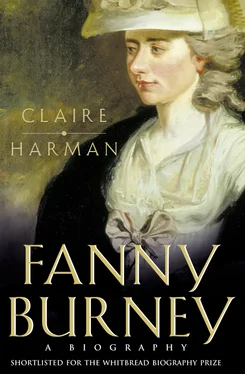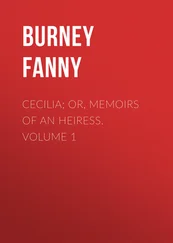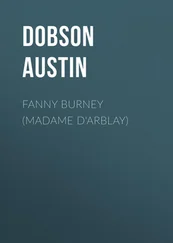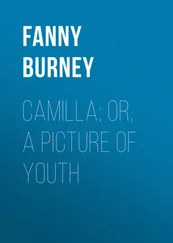1 ...7 8 9 11 12 13 ...31 Charles Burney admitted that a great deal of his success as a music teacher on his return to London in 1760 derived from ‘the powers of my little girl’, eleven-year-old Hetty. Musical child prodigies were fashionable, and even before the family’s move to London, Hetty had performed on the harpsichord at the Little Theatre in the Haymarket 53 and attracted the praise of the king’s brother by her mastery of ‘some of the most wild and difficult lessons of Scarlatti’. 54 Burney wrote showy exercises for her and for his brother Richard’s eldest son, Charles Rousseau Burney, a precociously talented violinist and keyboard player. The next generation of musical Wunderkinder to hit London would be Maria Anna and Wolfgang Amadeus Mozart in 1764, but for the time being the Burneys held the laurels. The proud Charles published a volume of harpsichord lessons to cash in on the method he had used to teach these two celebrated young performers, and was overcome with requests for new pupils, especially from among the ‘great folks’ in whose drawing rooms and music rooms his ingratiating charm went down particularly well.
Compared with her high-achieving older sister, her lively brother James and ‘angelic’ little Susan, Fanny must have seemed dull. She did play the harpsichord, but unsurprisingly chose not to be heard doing so in a household full of virtuosi, restricting herself to ‘thrumming’ occasionally on the keyboard when she thought she was alone. Hetty not only got intensive music tuition from her father; she was also her mother’s ‘chief attention’. 55 Together mother and eldest daughter were reading all of Pope’s works and the Aeneid in translation, heavy fare by the standards of the day for female education, while at eight, Fanny couldn’t even make out the letters of the alphabet. Susan was more advanced than Fanny, though three years younger. The struggle to teach Fanny to read had been going on some time. In Lynn, she had been ‘taught’ by her older brother, who teased her by holding the book she was meant to be reading from upside-down. The letters were so incomprehensible to her that she didn’t notice any difference either way, but the real pathos of this story is in the fact that she had been relegated to the tutorship of James at all.
Though her father was to say that his second daughter ‘was wholly unnoticed in the nursery for any talents, or quickness of study’, 56 he admits that in her ‘childish sports’ she was unusually inventive. When she was with her siblings or playmates she displayed a marked talent for mimicry and spontaneous invention, repeating scenes they had seen together at the theatre (where the Burneys often had the use of Mrs Garrick’s box) and happy, before an uncritical audience, to ‘take the actors off, and compose speeches for their characters’. 57 In a memorandum book for 1806 Fanny included the reminiscence of one of her childhood acquaintances, a Miss Betty Folcher: ‘You were so merry, so gay, so droll, & had such imagination in making plays, always something new, something of your own contrivance’. 58 In front of adults, though, the young girl clammed up. When a family friend dubbed Fanny ‘the little dunce’, her mother stood up for her, saying she ‘had no fear about Fanny’; but privately Esther and Charles had begun to worry about their third child’s ‘backwardness’. 59 ‘Today’, the psychoanalyst Kathryn Kris has noted in a study of Fanny’s case, ‘such visual perceptive difficulty, in sharp contrast to auditory fluency, would be recognised as a form of dyslexia’. 60
When Fanny did eventually learn to read it happened, according to her father, ‘all at once […] as if by intuition, nor did any of the family ever know how the talent was acquired’. 61 The miraculous style of this turnaround sounds suspicious, and one is tempted to see it as a symptom of Charles Burney’s curious inattentiveness to the details of his children’s lives. If the children did not display conspicuous ‘talent or quickness of parts’, he was unlikely to notice them, being, in Thomas Babington Macaulay’s opinion, ‘as bad a father as a very honest, affectionate, and sweet-tempered man can well be’. 62 Fanny wrote later of the ‘conscious intellectual disgrace’ she had felt about her illiteracy, indicating the degree of shame she experienced as well as the harshness with which she was apt to judge herself. Like many dyslexic people, she had developed complex and often arduous methods to get round the problem, and had learned a great deal of poetry, especially that of Pope, by committing Hetty’s overheard lessons to memory. * Her powers of recalling things, and of making up what she could not recall, were indeed very strong, although her parents didn’t seem to realise it. But the shame was strong, too. Later in life she habitually denied having any talents at all: if she wasn’t perfect in a subject, she would say she had no knowledge of it. On the question of her struggle into literacy, it is likely that she learned to read gradually, certainly with difficulty and mostly on her own, but waited to reveal her learning until it was substantial enough to impress her father.
Fanny claimed to have begun writing her own compositions as soon as she could read, using a scrawling form of handwriting, like ‘scrambling pot-hooks’, 63 that was ‘illegible, save to herself’. 64 This too sounds odd, more like the sort of scribble-writing most pre-literate children experiment with than the real thing. The earliest surviving examples of Fanny’s handwriting are remarkably neat and eminently legible. The ‘pot-hooks’ claim of a private, unreadable hand also suggests a childish stratagem to deflect the kind of jeering criticism she had experienced from her brother. It is worth bearing in mind that Fanny’s eyesight was poor, and that her short sight can only have hindered her progress with letters. Though apparently reading and writing by the age of ten, it is likely that she was still relying heavily on her memory and composing, as she had done for years, mostly in her head.
Charles Burney was often absent from the house because of his long teaching hours, both at Mrs Sheeles’s school in Queen Square, where he had an annual salary of £100, and at the many private houses he attended. He loved his family strongly and sentimentally, and if, as Macaulay rather acidly put it, ‘it never seems to have occurred to him that a parent has other duties to perform to children than that of fondling them’, 65 there are worse things he could have done. The affection he inspired in his family, and in Fanny particularly, was deep and sincere, and was often remarked on with envy by outsiders. He was a volatile man, highly strung and sometimes manically energetic. Family life was a balm to him, a source of entertainment and relaxation, and the more sensitive of the children must have intuited that it was important not to disturb this state of things. The girls strove all their lives to please and placate him, and the boys, oppressed by the struggle to be sources of pride to their father, each dropped out in rather spectacular ways.
Charles Burney had more than his usual preoccupations of work and money and self-advancement to deal with at this time. Not long after the move to Poland Street, Esther’s health began to decline. She was pregnant for the ninth time in twelve years, and had developed a cough which was thought to be consumptive. In the summer of 1761 she was ordered to Bath and Bristol Hotwells, leaving her husband tied to his teaching at Queen Square until the end of the term. At first, there seemed to be some improvement as a result of the curative waters, but back in London Esther grew weaker. The baby, Charlotte Ann, was born on 3 November and put out to nurse. All through 1762 Esther’s condition deteriorated, and she died on 29 September, after a week or more of ‘a most violent bilious complaint, wch terminated, after extreme torture, in an inflammation of the bowels’. 66 Of the children, only Hetty was at home to witness this dreadful calamity. Fanny, Susan and Charles had been sent to Mrs Sheeles’ ‘to be out of the way’, 67 and James, who had been discharged from duty on the Magnanime at his father’s request eleven days earlier, does not seem to have got home in time.
Читать дальше












